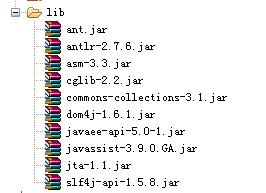HDU1568
[java]
package D0720;
/*
* 思路:要求斐波拉契数列的第n向的前4位数,如果直接按递推公式算肯定超时了
* 通项公式:f(n) = (1/sqrt(5)){[(1+sqrt(5))/2]^n-[(1-sqrt(5))/2]^n}
* 由于斐波拉契数列的第20项刚好是4位数,所以前20项可以单独用递推公式计算
* 后面的项可以这样考虑
* 两边取对数
* log10(f(n))=log10(1/sqrt(5))+log10([(1+sqrt(5))/2]^n-[(1-sqrt(5))/2]^n)
* 由于[(1-sqrt(5))/2]^n在n》=20时可以忽略不计,所以
* log10(f(n))=log10(1/sqrt(5))+n*log10([(1+sqrt(5))/2])
* f(n)=10^(log10(1/sqrt(5))+n*log10([(1+sqrt(5))/2]))
* 由于10的任何次幂都是10的倍数
* 所以f(n)的前4位值只与10^(log10(1/sqrt(5))+n*log10([(1+sqrt(5))/2]))的小数部分有关
* 所以就。。。。开始写代码吧
*
* */
import java.io.*;
public class HDU1568 {
public static void main(String[] args) throws IOException {
StreamTokenizer st = new StreamTokenizer(new BufferedReader(
new InputStreamReader(System.in)));
PrintWriter out = new PrintWriter(new OutputStreamWriter(System.out));
// 前20项
int[] arr = { 0, 1, 1, 2, 3, 5, 8, 13, 21, 34, 55, 89, 144, 233, 377,
610, 987, 1597, 2584, 4181, 6765 };
int n;
while(st.nextToken()!=StreamTokenizer.TT_EOF){
n = (int)st.nval; www.zzzyk.com
if(n<=20){System.out.println(arr[n]);continue;}
double m = Math.log10(1.0/Math.sqrt(5))+n*Math.log10((1+Math.sqrt(5))/2);
double p = m-(long)m;
p = Math.pow(10, p);
while(p<1000)p*=10;
out.println((int)p);
}
out.flush();
}
}
作者:lhfight
补充:软件开发 , Java ,




